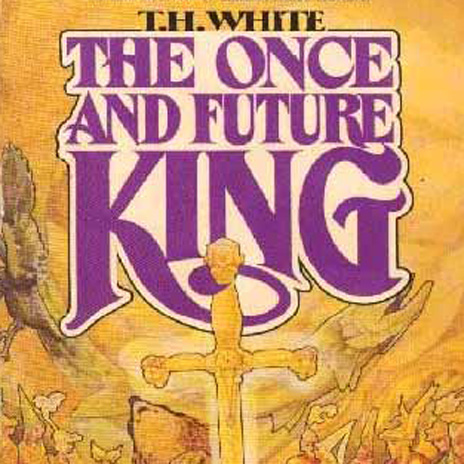As many of my faithful readers will remember, I started reading "The Once and Future King" by T.H. White about 3 years ago because it was mentioned at the end of one of the X-men movies (the first I think). Then I got distracted and bored, but I recently picked it back up and finished it off.
For those that don't know, it's one of the definitive tellings of the King Arthur saga. It includes accounts about his life as the child "Wart" which many would recognize from Disney's "The Sword in the Stone." And goes on through quests for the Holy Grail and Lancelot's affair with Arthur's wife Guenevere.
What I expected was a fun tale of fantasy and intrigue, but, surprisingly the main thrust of the book focused on different methods of government and how to avoid war, or use war to accomplish good (themes obviously related to the X-men comics and movies).
Much of it satired the notion of old-world chivalry because of the obvious hypocrisy of knights being obsessed with rules and politeness and then going off to murder people for sport.
From Arthur's tutelage under Merlyn, he's given the chance to see the world through the eyes of various creatures including ants, geese, and fish and to analyze how they govern themselves. He comes up with the theory that "Might does not always equal Right" ie: just because you can do something, and you're strong enough to get away with it, it doesn't mean your course of action is "correct." He then struggles for the rest of the book to find a way to effectively and pragmatically implement this idealistic philosophy in his "real" world of medieval England.
He starts off by trying to focus the frivolous energy of all the MIGHTy questing knights toward good causes, recruiting them to his round table and basically giving them a purpose other than pointless self-assigned "quests." Instead he sends them on quests that serve a higher purpose, righting the wrongs and injustices so prevalent in his country. In his words, he tries to "Use might FOR right."
Eventually this philosophy (and others he tries) have short-lived success, but don't bring about his desired results in the long-run, and the book ends off exploring what the root causes might be for war...whether it be the idea of possessions (maybe if everyone had all things in common war would go away), or territory lines, or what have you.
Overall, it was good food for thought, especially since we, in the U.S. have been confronted with the election of a new leader for our government. It was a good reminder that high ideals are not always easy to put into practice, nor should they be abandoned for pragmaticism, but good leaders are in constant struggle with both aspects of their responsibilities: to move toward "RIGHT" in a way that actually pays off in practice.



No comments:
Post a Comment